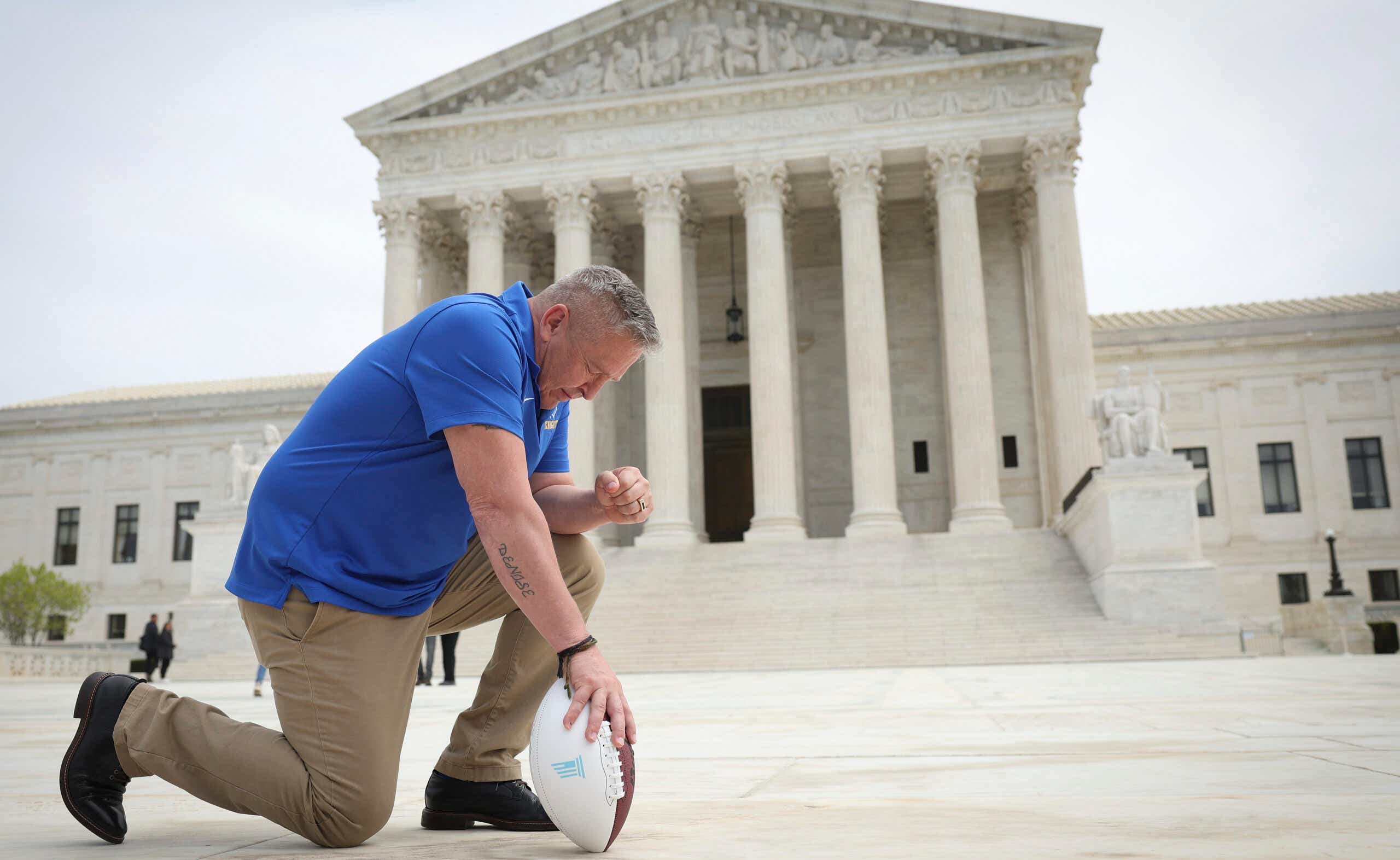The U.S. Supreme Court’s decision to rule in favor of a former high school football coach who prayed after games is raising serious concerns about religion and its impact on the government.
In a 6-3 decision, the court’s conservative supermajority ruled that Joseph Kennedy, an assistant high school football coach, had the constitutional right to freely practice his religion after games.
“The Constitution and the best of our traditions counsel mutual respect and tolerance, not censorship and suppression, for religious and nonreligious views alike,” Justice Neil Gorsuch wrote in the majority opinion.
Writing for the dissent, Justice Sonia Sotomayor warned that the majority’s decision marks a further erosion of the separation between church and state. Just last week, the high court ruled that Maine can’t exclude religious schools from a state tuition assistance program.
Here’s why the outcome has sparked such mixed reactions from the public — and the justices themselves.
What’s the story?
Starting in 2008, Kennedy began kneeling on the school football field to pray after games. Before long, many of his players joined him, as did members of opposing teams. This went on for seven years before school administrators at Bremerton High School in Washington told him to stop over concerns that his actions could be interpreted as a school endorsement of religion.
Though Kennedy stopped leading students in prayer in the locker room and on the field, he continued to defy the school’s request that he no longer kneel on the field to pray by himself after games. Administrators responded by placing him on paid leave, and he became something of a celebrity for his defiance. Kennedy later chose not to renew his one-year coaching contract and instead filed a lawsuit against the school, claiming it violated his First Amendment rights.
After losing his initial case in lower courts, he went back to the Supreme Court for a second time, and they agreed to hear the case. This is where things got complicated: The case fell between an intersection of the First Amendment’s establishment clause, which prohibits the government from endorsing religion, and clauses protecting free speech. While Kennedy maintained that he was expressing his own beliefs, the school district said his influence as a coach put pressure on the football team to also participate in the prayers.
What did the Supreme Court say?
The Supreme Court sided with Kennedy, saying his actions were protected by the First Amendment.
Justice Neil Gorsuch also noted in his opinion the school’s concerns that the prayers would be viewed as a school endorsement didn’t hold up because the school didn’t actually prove that students had been coerced into participating in the prayers led by the coach. In fact, he repeatedly argued that Kennedy led a “quiet, personal prayer” after football games, while other justices on the court disputed key points in the case.
“The record reveals that Kennedy had a longstanding practice of conducting demonstrative prayers on the 50-yard line of the football field. Kennedy consistently invited others to join his prayers, and for years led student-athletes in prayer at the same time and location. The Court ignores this history,” Sotomayor wrote in her dissent.
What does the opinion mean?
This marks a break from previous decisions: For decades, the court has largely struck down prayers organized by officials on public school grounds. More specifically, legal experts say Monday’s decision reversed the landmark 1971 ruling in Lemon v. Kurtzman, which created a legal framework for assessing church-state separation under the First Amendment’s Establishment Clause.
Still, others say the high court could have been more clear in its ruling — and that much is left to the interpretation of other judges moving forward.
“It would’ve been helpful if the court had said, ‘Look, public employees can practice their religion, but they cannot coerce it on others,'” says University of Texas law professor Steven T. Collis, who specializes in religion and First Amendment rights.
But amid fears that this could upend the separation of church and state, Collis emphasized that it’s important to look at the facts of this specific case in determining how it could affect others that might be similar.
“If this coach had been asking for the right to pray in the locker room in front of all the students, or if he had been asking for the right to continue to give religious speeches to players at midfield, he probably would’ve lost,” Collis told KCM. “But he was actually asking for was the right to pray quietly by himself. That’s all he asked for.”









